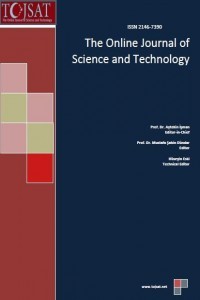CRITIQUES OF ADORNO AND HORKHEIMER ON MODERN SOCIETY: A PESSIMISTIC APPROACH
CRITIQUES OF ADORNO AND HORKHEIMER ON MODERN SOCIETY: A PESSIMISTIC APPROACH
Enlightenment, Modernity Culture Industry,
___
- Adorno, T. W. with Max Horkheimer. (2002). Dialectic of Enlightenment. Stanford: Stanford University Press,
- Geuss, Raymond (1981). The idea of a critical theory: Habermas and the Frankfurt school. Cambridge University Press.
- Held, David (1980). Introduction to critical theory: Horkheimer to Habermas. University of California Press.
- Jay, Martin (1996). The Dialectical Imagination: A History of the Frankfurt School and the Institute for Social Research. University of California Press.
- Wiggershaus, Rolf. (1995). The Frankfurt School: Its History, Theories and Political Significance. Cambridge, MA: MIT Press
- ISSN: 2146-7390
- Başlangıç: 2011
- Yayıncı: The association of science, education and technology
EFFECT OF MUNICIPAL HEATING SYSTEM COAL ASH ON THE INSULATION PROPERTIES OF LIGHT WEIGHT CONCRETE
Ali YİĞİT, İsmail DEMİR, M. Serhat BAŞPINAR
A NUMERICAL INVESTIGATION OF MULTIPHASE FLOW AND OIL SPILL IN ISTANBUL STRAIT
Ali DOĞRUL, Yasemin ARIKAN, Fahri ÇELİK
PRINCIPAL COMPONENT CHART FOR MULTIVARIATE STATISTICAL PROCESS CONTROL
CRITIQUES OF ADORNO AND HORKHEIMER ON MODERN SOCIETY: A PESSIMISTIC APPROACH
STUDY OF SULFIDES MINERAL FLOTATION WITH XANTHATES: CONTROL PARAMETRES OF FLOTATION
